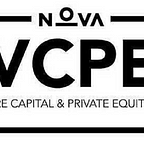The trend of venture debt and its risks
By Ludwig Voltz
In recent years, there has been a shift in the startup financing landscape towards debt financing, with more startups opting for debt funding instead of traditional venture capital (VC). This trend is driven by a number of factors, including the current bearish funding market and the increasing availability of alternative sources of financing.
Over the past year, many private technology companies have faced a funding shortage due to a dramatic fall in venture capital dealmaking and a limited market for initial public offerings. Startups had to cut costs, which has led to a wave of layoffs in the tech industry. However, there is still a great demand for new money since most of the startups focused only on growth and are not profitable yet.
New VC equity funding rounds would most likely imply a lower valuation, a down round that is highly dilutive to existing shareholders, which is the reason why startups take on increasing amounts of debt.
According to pitchbook, venture debt deals in the US increased significantly in the past years.
For example, Seller X, a German e-commerce brand aggregator, secured a loan of $400 million this year. Another large debt deal secured was by Artic Wolf, a cybersecurity company from the US, which raised 400 million in debt in 2022.
Startups have engaged in debt-focused transactions such as bridge loans, structured equity, convertible notes, participatory bonds, and significant liquidation advantages. Especially convertible bonds are in great demand. But new financing structures are also emerging, for example, revenue-based financing, which is an alternative for startups with contractual or predictable revenues.
Due to the increasing debt trend, also non-credit companies are entering the market. The latest announcement came from Blackstone Inc., which anticipates lending $2 billion to growth companies over the next years. Also, private equity firms like KKR & Co. or Bain Capital LP are seeking to expand their venture debt lending.
But debt is not without risks to startups or their investors. Venture debt must be repaid, unlike equity. The consequences can be devastating if a company violates repayment terms or covenants. The loan is immediately due and payable if it is in default. Additionally, if the lender is unwilling to compromise, interest rates may be raised or additional credit privileges can be suspended. Due to the recession, several venture lenders have increased or tightened their covenant requirements.
Furthermore, venture lenders receive their money back first when an exit occurs, since debt is higher up the capital stack than equity. The founders and other investors may lose everything if a company takes on a lot of debt and the money from the exit doesn’t cover it all. Moreover, a lot of debt makes the startup less attractive to future investors.
Abhinav Ramnarayan, Lizette Chapman, Ivan Levingston. (September 2022). Bloomberg: Startups Are Borrowing More as the Easy Venture Capital Money Vanishes. Available at: https://www.bloomberg.com/news/articles/2022-09-12/startups-embrace-debt-as-tech-crash-slows-venture-capital?leadSource=uverify%20wall
Claire Coe Smith. (November 2022): Private Debt Investors: The rise and rise of venture debt. Available at: https://www.privatedebtinvestor.com/the-rise-and-rise-of-venture-debt/
Leah Hodgson. (November 2022). Pitchbook: Investors point to risks of venture debt. Available at: https://pitchbook.com/news/articles/venture-debt-risks
Marina Temkin. (December 2022). Pitchbook: Flurry of down rounds hints at valuation resets ahead. Available at: https://pitchbook.com/news/articles/vc-downrounds-snyk-dataiku-oda
Marina Temkin. (September 2022). Pitchbook: Large-scale investors flock to venture debt’s ‘phenomenal returns’. Available at: https://pitchbook.com/news/articles/venture-debt-financing-blackstone-KKR
Madeline Shi. (August 2022). Pitchbook: Venture lending flourishes amid VC funding pullback. Available at: https://pitchbook.com/news/articles/venture-lending-debt-startups-blackstone
Marina Temkin. (July 2022). Pitchbook: In VC market slowdown, alternative financing emerges as a path to funding. Available at: https://pitchbook.com/news/articles/venture-debt-financing-capchase-pipe-fundraising
Tabby Kinder. (December 2022). Financial Times: Silicon Valley start-ups race for debt deals in funding crunch. Available at: https://www.ft.com/content/d12a4baa-53c6-4256-b125-d25622f9555f
